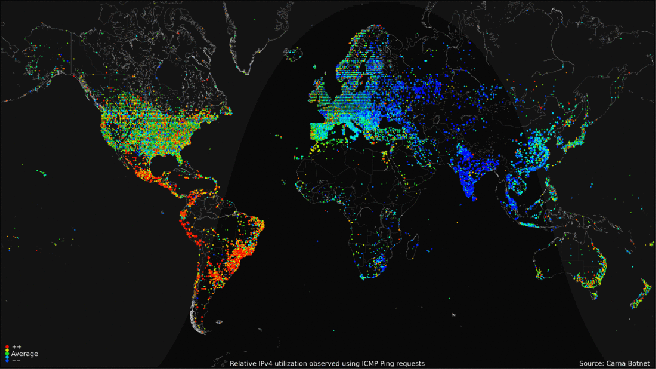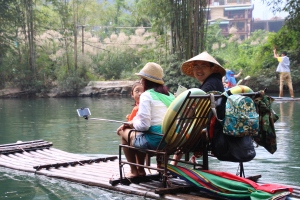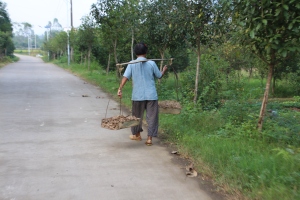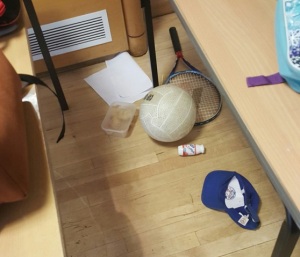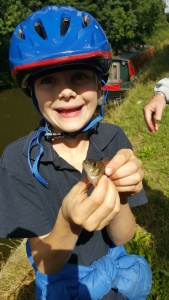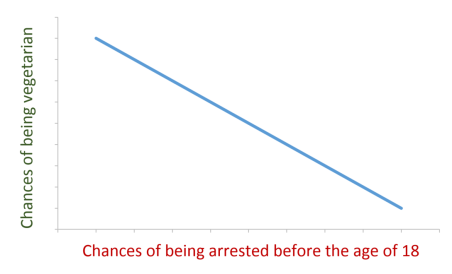Over the last three months, we have been the unwitting lab rats in an experiment to live on the summit of an active volcano, spewing dark ash over our home, every day. This volcano is young, geologically speaking, just nine years old in fact. This mountain of fire and brimstone, louder than a heavy metal concert turned to 11 on the amp, bears an uncanny resemblance to a primary school boy and, on a good day, our youngest son. The gentler slopes provide a safe harbour for animals, (two cats and a hamster to be specific) and a fertile land for creative ideas and questions. In contrast, the angry, gaping crater spits fire and leaves destruction in its wake. In this three month period, this force of nature has been excluded from two primary schools, once permanently, both illegally. At a temporary school, he has learned how to dangle a peperami between his legs and say “suck my d**k” and as a special highlight, we have been referred to social services in the belief that it is us who are failing him. So how did this three month nightmare journey to live at the mouth of hell start? Buckle up, it’s going to be a long and bumpy ride over this volcanic soil.
November 29th 2016, my 9 year old son, Connor, experiences a normal day at school: another child interrupts his ball game in the playground and the ground stirs………..
The volcano on which I live is hyperactive and impulsive, ADHD diagnosed hyperactive and impulsive; yet the ground miraculously stands still for a few minutes while the constant advice of his parents rings in his ears, “talk, tell or ignore”. Connor first talks to the child who annoyed him, politely, asking him to move. When this does not work, he then tells a nearby adult that he needs help as not one of his three normal Teaching Assistants is with him that day. When the adult approaches, the ground starts to vibrate, oh so gently, as the annoying child then lies and says that my son hurt him. A small vibration, perhaps only detectable by an expert with sophisticated equipment and training, but it is there. The adult, thinking he is on solid ground, believes the annoying child and forces my son to apologise. Immediately afterwards, the ground shifts, the vibration becomes a tangible rumble. The first, single, molten rock is thrown up, directed at the adult in the shape of the ball thrown at his chest. The adult responds with an angry shout at Connor, “That’s it!” So Connor flees, to his safe space, where a written agreement with the school states that he will (should) be left alone. Not this time. Connor is followed, watched, and he does not feel safe. Now there is adrenaline running like molten lava, bubbling up, needing somewhere to go. He tries to escape out of the school, to find a route for the heat inside him to flow out and away. This is forbidden though, and Connor is restrained by the same adult, pulled forcefully back into the space where fear has already fuelled his angry inferno. The lava has to go somewhere, and it explodes, hissing great gobs of fire at the adult and further, across the whole school. Staff look on in amazement at this natural disaster, unstoppable, loud and fuming.
Eventually the loud, violent explosions become a river of molten rock, flowing, oozing, still determined and enraged, and Connor finds his way through a gap in the football cage fence to a space just inside the school perimeter where he knows no adult can reach him. But anger is not unique to this volcano and while he cools, the headmistress is just getting fired up. She advances onto the scene and shouts at my son to “come back here or I will call the police“. By the time my son is a warm, smooth pebble in my arms at 3:15pm, there is no trace of the day’s eruption, no mention in his daily communication book, no-one greets me to tell me tales of fireworks. Like many days before, Connor tells me he has not had his best day and we hug before walking the 10 metres to our home. In the evening, the communication starts: an email from the headmistress, a five-day long exclusion starts the next day and perhaps she will make it permanent. The reasons cited are “assaulting a member of staff and leaving the school grounds”. I shout and cry simultaneously because I know this is the beginning of the end. Then I breathe calmly and start making notes………..how did we get from a bad day just like any other, where Connor’s learning disability is poorly supported and he is incapable of managing his emotional response, to this threat?
I look back to July, when the headmistress called an emergency meeting with the head of the local authority’s Special Education Needs (SEN) department, after giving Connor yet another fixed-term exclusion. We were all working together to get Connor temporarily into a special school. Since then his Statement of Educational Needs has been transferred to the infinitely better worded Educational Health Care Plan (EHCP) in a record matter of weeks. It lists on 10 pages all the strategies that should be in place to help Connor manage his diagnosed non-verbal learning difficulties and ADHD. It references reports from Speech and Language Therapy, Sensory Support Services, an Educational Psychologist and comments from his consultant paediatrician. The school is given “double funding” to pay for the additional support they say they need to keep Connor safe. I cannot fault the local authority for doing the right thing. However, the force for good is balanced by the dark side that is Connor’s primary school implementation of this EHCP from the first day back in September. At least half of the EHCP strategies are nowhere to be seen, despite the fact they are legally binding. The temporary special school will not be opening for the foreseeable future either. In this gap, the headmistress sees permanent exclusion as the only way out. She makes two calls to check she has the authority to end our son’s mainstream schooling and emails us to tell us she is doing this on December 1st. She can tell us no more than this as she does not know what the next steps are. Unfortunately, the next steps are hers to take, to get our smouldering volcano into “Alternative Provision” (AP) on the 6th day after he is permanently excluded. In her ignorance, no paperwork is filled out, no transport sorted and our volcano sits quietly at home, almost dormant in disbelief. I rush around, navigating new pathways through the landscape, to get a temporary place sorted. His classmates are told by the same headmistress that we are taking Connor out of his school. Well-meaning parents ask us what made us decide so close to Christmas to pull the ground out from beneath us.
December 8th, 2016 a side vent opens on our volcano, in a primary, AP classroom on the other side of town. It is small, just 5 kids sit in formal rows: “the marginalised, disenfranchised and forgotten children” that Jarlath O’Brien writes so eloquently about. This is where Connor learns a new vocabulary: short words, between 3 and 5 letters long and how to buy vaping equipment. Confused and disquieted by his new landscape, he asks me how it is possible that one of his classmates has a reward chart at the age of 10 that says “Don’t do drugs”. “But Mimi, he has all crosses on his reward chart, no ticks. Why would a 10 year old smoke?” I am at a loss to help, I can wrap my arms around this small trembling rock, but I cannot tell him that the current UK educational system knows only about “inclusion”, which really means “try to turn a volcano into England’s green and pleasant land so that it will fit in”. It is utterly meaningless to quote a senior member of staff at one of these units interviewed in a Radio 4 article to my son, to reassure him that “most students want to learn” in these pupil referral units. The statistics speak for themselves, only 1% of pupils in AP achieve 5 GCSEs compared to the 60% national average.
As the last week of term rolls by, ash clouds burn loudly through our house on a daily basis: a volcano of frustration and fear of the unknown. A disability marked by a rigid way of thinking, as deep as the magma chamber beneath, a child struggling with his new way of life. The arranged transport to take him to school arrives on time 50% of the time, sometimes it does not turn up at all. I call and complain and am told that the drivers are not allowed to leave the car to come to our door and no, they do not text (on a school run) to let us know they have arrived in our street. So on one occasion the car parks round the side of the volcano, invisible to me, waits five minutes and then drives off. My son’s whole life has been ploughed through the middle to make way for this?
December 23rd, 2016 and we are still waiting for the local authority to name a new school for Connor, so that he can put roots down somewhere new. We are offered a choice between two special schools, both an hour away, but no advice on whether they are suitable for Connor. One, seemingly, does not even reply to the request to review Connor’s EHCP to confirm if they can meet his emotional needs. We visit the other school, and are proudly shown the construction yard, the mechanic lab and the hospitality and catering kitchen. If our son is smart enough, he may eschew these vocational choices and take three GCSEs instead, at the age of 18. It is clear that this school cannot meet Connor’s stated need on his EHCP for him ” to achieve at school so that he can become a vet”. I look at the primary Nurture class which is wonderful. I see the small outside space, accessed through multiple locked doors, which is less wonderful. Volcanoes are not known for confining their explosions or operating swipe cards. I see the room with padded walls and floor and I want one. NOW. I want one so badly so that I can crawl in and shout and rage against the machine and cry and stamp my feet and hit the walls again and again and emerge when this is all over. I would probably change the colour scheme though, wall to wall bright blue is rarely a flattering light for anyone. But my battling has to be done over email in the real world, writing a lengthy statement to the local authority stating our clear preference for anywhere other than the daily commute to a place where we will watch our son fail year after year until all his fiery ambition is burned out.
We spend Christmas and New Year under the ash cloud, with daily, choking, dark periods where all we can hear is a lost child trying to find solid ground under his feet. “My group of 15 friends have lost one of their group, I have lost all 15 of my friends”. He longs to go back to his normal school but his disability means he cannot express this sadness with anything but rage. Even Christmas day is spent with an unexpected tremor on the mountain, a surprise explosion on the stairs to bed, rocks sent flying in all directions. As parents of this volcano, we group together, we huddle down, we cover our heads, we pick ourselves up, over and over again and try to share our time equally between three children who need us. We hold each other and hibernate. We want to count the days to calm weather again, but we don’t know when it will happen. Perhaps the next eruption will be the last we can stand, our family and home ripped up and swallowed up by this aggressive, relentless, searing heat. I book a summer family holiday for us all to define what calm weather will look like, even if I can’t see it yet.
On January 3rd, 2017, the headmistress’ decision to permanently exclude Connor is reviewed by the school Governors as part of the normal process. We are new to this process, but turn up anyway for giggles and because Connor wants his voice heard. He just wants the governors to know that the other child lied. A simple, “It wasn’t fair” backed by his rigid sense of fairness that exemplifies non-verbal learning difficulties. Multiple witness statements are produced by the headmistress, describing in detail what teachers saw as the crater exploded, sending heavy shards of ruin into his future. The headmistress also provides a document outlining why the school decided not to implement legally binding items on his EHCP because they were waiting to see when and how Connor would be helped by the temporary placement at a special school. She defends her shouting at Connor as she was “terrified” he would leave the school premises. We are allowed to ask questions:
- Do you have a single witness statement that captured the onlooker’s description we were given, of the polite boy at the start, frustrated by his ball game interrupted?
- Could you tell us why you decided not to implement many of the legally binding items on Connor’s EHCP from the start of term, just to see if they would help?
- Could you remind us please, how Connor would have escaped from school by the football cage? Is this by climbing up and over the six foot tall, metal spiked perimeter fence?
- Where would Connor have ended up if he had escaped school that was so “terrifying”, given that we live next door?
The headmistress’ answer to all of these questions is slightly less than satisfactory in terms of content. From an aesthetic point of view, I haven’t seen someone look so uncomfortable since the head spinning scene in The Exorcist.
We hear that when the headmistress made the two calls to check she was authorised to exclude Connor permanently, she did not pick up the phone to seek help from Social Services; child counselling services; the children’s service who visited the school just a fortnight earlier; the local authority Educational Psychologist; Child and Adolescent Mental Health Services (CAMHS); the SEN and Disability Partnership Service or AP emergency support to find an alternative solution. This is perhaps unsurprising as we also learn she doesn’t even have a policy document or process in place to describe under what circumstances the head would/could permanently exclude a child.
The governors do not uphold her decision. It is overturned. Just like that, our volcano is on home ground again. There is now no need to send him anywhere.
We should have been careful what we wished for. For now, his only option is to go back to the school that has documented so thoroughly how they have failed him. He can return to all of his classmates and half his EHCP in place. He can wait for the headmistress to write her new policy document and go through all of this again when something else breaks through to that chamber of heat and simmering anger below the surface. The SEN head at the local authority can no longer help us to find a different long term school for Connor, “her hands are tied”. The right to send your child to the mainstream school you choose is supported and enshrined in law, with a formal appeals process if for some reason it doesn’t happen. We were being given back that right. There is no protection, however, when every fibre of your being is repulsed by the idea of sending your bright son back into the mainstream school that has permanently excluded him, wrongfully. Our belief that Connor would be better supported outside mainstream schooling, a belief previously upheld by the local authority, has been overturned as rapidly as the headmistress’ ill thought out decision was made in the first place.
The statistics are not helpful either if you think we are alone here on the barren upper slopes of the volcano, staring into the abyss. Pupils with additional needs are 7 times more likely than their mentally able peers to be permanently excluded. They are more likely to end up in prison and, on average, die 15 years earlier than their peers. Connor still wants to go back.
The government has not stood around waiting for this to play out I am glad to say. Just 6 days after the governors’ meeting, Theresa May calls for “a revolution in child mental health care” and promises more funding for schools. I caught the headlines online and so was able to see the societal response to this national crisis with numerous comments posted in reply to the Times article I read. Example quotes are below in blue text, the spelling mistakes and grammar are all those of the authors.
CurrentBun Jan 9, 2017
What exactly is ‘mental illness’ these days?
feeling a bit worried?
feeling a bit down?
No wonder it’s so widespread!
Lady P Jan 9, 2017
It beggars belief that the solution is to chuck money at schools. If 10 percent of children have mental health issues, we have a national parenting crisis. But it is too controversial to discuss that. Instead we blame institutions and as usual the solution is money money money.
PHILLIP LEIGH Jan 9, 2017
The majority of parents suffering children with mental help problems are the architects of their own misfortune having contributed to the problem by providing a poor example of a settled home life. Teachers will confirm that the children suffering most are those either from a broken home or one that is breaking down. we must concentrate on identifying these situations at an early stage and give support by providing alternative role models.
PHILLIP LEIGH continues
Following on from my previous comments regarding unhappy home life contributing to mental health problems affecting youth. I would draw your attention to the additional mental pressure experienced through the stress being placed upon them by parents and teachers in relation to the importance of academic achievement.This in my view could be considerably relieved by the re instatement of Technical Colleges which were abundantly available in the 1960’s and from which the likes of my good friend The Lord Sugar evolved.
Prabhat Jan 9, 2017
Thank you, Times, well done.
That said, I am surprised that there is no provisions for assessment of the child’s affairs at home (and the stability of his/her parents) alongside the online bullying in assessing the mental health issues given that those play significant (if not the dominant) roles in a child’s slide into depression.
Jane C Jan 9, 2017
“Schools could be judged by Ofsted inspectors over their level of mental health awareness.”
Great. Something else teachers are to be made responsible for. No mention of parents’ roles in their children’s health and well-being?
midlife mum Jan 9, 2017
@Silvia Le MARCHANT
Parents have to take responsibility for this I agree.
And the biggest problem? The internet.
Turning off the wifi would be the best start. Our kids are overwhelmed with social media/celebrity culture/porn freely available on the internet.
CM Jan 9, 2017
Meanwhile we can’t afford cancer drugs for people who have paid in all their lives. perhaps their parents can take their phones off them to stem the narcissism that is leading to their eating disorders. This country makes me sick. Heal the taxpayers before you worry about children who should be their parents concern. We got through the 2nd world war without worrying about child depression. This is pathetic. Heal the sick, not the spoiled.
Vive la Revolution.
In the past, I have been told to my face that my “seriously unhinged son’s” ADHD could be made better by me staying at home to work, rather than doing one business trip a year on average, and I thought that was ignorant. Since that time I have been unemployed and at home every day for 18 months and now work from home full time. Lo and behold, the volcano I live on still erupts, at predictable and unpredictable times, but it is certainly still active. Even if I wanted to change the numbers, it has been conclusively proven, hundreds of times over that only 26% of the variability in the extent to which my children are psychologically well balanced is down to how much my kids feel we love them as parents. I’ve done the validated tests and my son feels adored by both his parents. It’s pointless though, I cannot use logic to argue people out of discriminatory views that they didn’t use logic to believe in. I have never seen such discrimination and ignorance printed in black and white though, in a national newspaper; at least not before Brexit and the presidential campaign started on the other side of the pond. Had I only realised that Wi-Fi or mobile phones were in fact to blame for my son’s behavioural disability, perhaps I could have acted earlier? Was this in nursery when he was a small volcano but had no mobile phone or Wi-Fi I wonder? Perhaps I should embrace the lack of academic route that Phillip Leigh prescribes even in direct contradiction to the level of intelligence my son displays? If our son was born deaf, would we be blamed for not teaching him to listen properly?
January 9th, 2017. Although the comments above do not exemplify common sense, on the same day that I had to walk calmly away from the comments I read above, common sense did prevail at our local authority. The SEN head calls me on the phone and announces a third option for us: a small special school with just 15 children in our home town. Dare we hope that this is the best of both worlds? Our volcano stays put, surrounded by his friends after school? He can continue to go to Cubs and Tae Kwon Do, while being supported effectively during the day at school to grow to his full potential? We meet the headmaster and head of the primary unit of this magical third option: two parents united to get the best we can for the volcano we call home. The headmaster tells us that in his opinion most of the issues with kids like our son arise as a result of poor parenting.
I want my padded cell again.
We smile, never able to convey to someone who does not have a child with special needs that we can no more resolve our son’s challenging behaviour and mental health issues through exemplary parenting skills than we can move mountains with our bare hands. We ask how an eruption would be dealt with, from the first rumblings onwards. The headmaster dismisses the usefulness of early detection equipment and states that punishment for an erupting volcano is key to driving good behaviour, with detentions and then fixed term exclusions being the best, and most frequently used weapons. Detentions are based on the principle of modelling desired behaviours: “if a child wastes our time, we waste theirs”. He proudly states that he has reduced the number of fixed term exclusions to thirty-two in the last academic year. The school’s most recent Ofsted report suggests a different opinion, requiring that the use of fixed term exclusions should be “rare”. Barnardo’s children’s charity describes fixed term exclusions as “an over-used and ineffective disciplinary measure“. The use of both disciplinary measures at this local special school is itemised on every weekly update letter home. Having attended two entire series of parenting classes led by either the Family Support Services or CAMHS, I can certify that parenting a child with special needs takes Herculean mental and emotional strength and importantly, compassion. You see volcanoes do not erupt out of spite. They do not test boundaries and push others with hate and vengeance in their heart. You cannot start every day, anticipating the worst, hiding all the fragile items in your house from the explosions that slam doors and tear through the walls on a daily basis. You have to hope for the best, watch for the flowers coming up from the ground and nurture them, even if for weeks on end there is nothing to see but bare earth and black lava. You cannot punish something that was not a wrongdoing. Volcanic eruptions are a way for volcanoes to relieve pressure, it is a response to the environment around them. It is our society that defines them “socially unacceptable”.
We keep smiling on the guided tour of the third special school as we are shown the classroom for the youngest “anklebiters”. We have two key discussions with the head of the Primary Unit, who at least had the decency to roll her eyes too at the head’s use of the term “anklebiters”. Firstly, we are told that not even 1% of the pupils in this primary unit ever reach national age expectations in terms of academic ability. We are told this is a deliberate strategy to limit the academic challenge to “keeping numeracy and literacy ticking over” as it is all their little brains can do to learn how to manage their emotional response differently. Although AP schools do not have to teach the national curriculum, this is in direct contradiction to a Department for Education study that clearly states, “All children who are referred to AP should continue to receive appropriate and challenging English and Maths teaching.” This lack of academic challenge would be more pronounced for Connor as he would join the class with kids up to two years younger than him and there is nothing we can do about this, as the class with the older kids is full. We think of our lively little part of nature at home, forever pushing into new territory, constantly inquisitive; a kid who has reached national age expectations despite only being inside a classroom for half of each week on average. We firmly believe that if you stop this curiosity, you might has well put your hand over the summit of the volcano and stop the ensuing eruption with your bare hands too. When we voice this out loud, we are firmly told, “As a family, you need to sit down and reassess and reduce your focus on academic achievement”. Lord Sugar’s friend would no doubt be proud, but we find it genuinely hard to put one foot in front of the next, to walk round this low, swampy marsh of educational despair. But how do we know that this isn’t the best option for our son? What do I compare this to? There is no Sunday Times guide to the best special schools; they are hidden from public view. The second key discussion point is a recommendation to look at three more special schools within a 50 mile radius and we realise the hunt is on again.
One of the three schools takes itself off the list as the SEN head at the local authority refuses to send children there as “she has concerns”. Another very polite headmaster talks to us on the phone, choosing his words oh so carefully. His school is a haven for children with autism. They shelter at his school from their own personal raging tornadoes. Their rigidity of thinking makes Connor look like a birch sapling in the wind. If a volcanic eruption meets these tornadoes, the tornadoes will keep blowing. They will be curious to understand why and how this mountain is exploding, sending deadly rocks hundreds of metres into the air, with deafening noise. There is no empathy to feel the ground beneath their feet shaking. Instead, the wind will keep blowing in and around these bolts of fire and the volcano will be relentless, pushing back, burning to find a way free from this intrusion into his own explosive embarrassment. We thank the headmaster for his time and move on to the third school. We are told that they take children with learning disabilities only, not behavioural difficulties. I can’t say I blame them.
So now we should wait, wait for the head of SEN at the local authority to tell us that our son will join the special school in our home town. I can’t wait though, I am the army behind a volcano. There is one school left, a school we had dismissed as it is a boarding school. I love my smallest son with a fierceness that I do not want to see broken. I want to hear his endless questions and give him squeezy hugs every day. This is not about me though, this is about what is best for taming a volcano. The headmaster of a school that holds 36 boys, all like Connor, is contacted and Connor and I move heaven and earth to visit. This school, seemingly located on the boundary of multiple tectonic plates an hour away, has a headmaster who declares that he can support Connor in any and every way he needs. He quotes the statistics that half of his children reach national age expectations in terms of academic ability and there is even an informal gifted and talented list. He describes his school as “a school filled with kind and gentle boys who often do not behave in kind and gentle ways”. He describes skilled, caring staff who are armed with expert, early detection tools. In 5 years, he has given out less than 5 fixed term exclusions. I cry.
I am sat in the headmaster’s office, unsuccessfully holding back tears, next to my son who is asking the headmaster whether he would move on from this school at the same time he would have normally gone to secondary school or not? We wander round the 17 acres of grounds and Connor is shown the trees he can climb and the spaces he can run to unhindered, inside and outside. On several walls are pieces of artwork that have been made jointly by the boys there. For the cost of sending one child to this school you can send two children to Eton. I am making notes again: there is work to be done to remind the SEN head at the local authority of the importance of parental choice in the naming of a school on a child’s EHCP.
January 16th, 2017, I am reminded that I am still living on a volcano and the honeymoon period is over. The volcano has mapped the land at the temporary school and has found the weakest spot. The ground heaves, ash clouds are interspersed with sparks of fire and then a giant belching eruption flings rocks and lava high into the sky. For four hours, lava spills over in the class, into the corridor, into the headmaster’s office and four staff are unable to prevent it. They hold back the lava temporarily through “team teaching“. This is a program that includes “positive handling strategies”. These are euphemisms for “when your son misbehaves, numerous adults will physically restrain him with his arms crossed across his chest until he becomes submissive through fear”. The same Radio 4 article cited earlier highlights the increasing frequency of restraint in AP units. An interview with an AP teacher shows that some staff believe this technique is as damaging as the physical abuse that many kids experienced early in their lives that contributed to them being permanently excluded in the first place. Before our crater collapses, Connor pulls the stitching off the back of a settee and his class teacher calls me at work. In the afternoon, the class will be going on an external trip, which means there are no staff to look after Connor, who is not safe enough to go on the trip. The teacher “needs parental responsibility to step in and collect Connor from school, now”. This is illegal. This is what is called an “informal exclusion”: the staff can’t cope with your child, for whatever reason, and so they ask you to take him home, but no-one mentions formal exclusion. I want school responsibility to kick in, but what choice do I have? I ask her if I can speak to my son, but he refuses. So I race to collect my son between meetings and shout at him all the way home.
I have a friend who told me recently that she is going yellibate. It’s like celibate, but you go without shouting at your kids. She has her own reward chart for it and is doing very well. I admire her enormously. There are times when my pressure gauge fails and in the car driving across town, racing to make my next meeting, there was nowhere for my anger to go but out and loud. My son tells me this is precisely why he wouldn’t speak to me on the phone, because he knew I would be angry. Two days later on January 18th, we receive a letter dated January 17th, telling us that our son is being excluded for a fixed term of the afternoon of January 16th. The informal exclusion is officially recorded and becomes a formal exclusion. Oh, I am angry all right. A week later Connor receives a detention for throwing tables around the class. In his words, he was bored because no-one gives him any tricky maths to do. When he asked for more tricky maths the teacher replied “no-one likes a smart kid”. No transport is provided when your kid is in detention: a cruel punishment for the parents, too, seems essential. I am no longer angry, I am livid.
January 27th, 2017 after many late nights, glasses of wine and 4334 words later, I have written a letter to the SEN head at the local authority that in summary says that we will not stand by and watch our son fail again through the actions of the so-called responsible adults around him. We will not watch him fail academically at the next school that will destroy his love of learning. We will not let adults “model” the behaviour our son needs to mirror by wasting his time in detention over and over again. We do not want to see him punished for his inability to manage his emotional response by telling him he is unwanted at school for the rest of the day or the next day, or five or forever. We will not stand by if he is illegally excluded again, either informally or formally. We will not live on the summit of a volcano and hope for the best any longer. We will not wait for our volcano to become extinct because it has lost the will to live with all the vibrancy he has now. In no uncertain terms we want our son to have the education we all want for our kids: the right one. We want him to be in a place where he is supported, nurtured and taught how to manage his behaviour free from punishment. When at least four external agencies are involved in defining what support my son needs, we want the educational establishment he is at to use this information and help him.
February 3rd, 2017, after anxiously waiting a week, we are told that our son should get ready for boarding school, starting on March 1st. Our three month experiment will come to an end. We send the SEN head at the local authority a card, thanking her. I remark that the selection of thank you cards at leading high street retailers are truly inadequate for this particular kind of occasion.
So, I must turn my energy towards preparing Connor for 17 acres of space, a swimming pool on site and weeks without his parents tucking him into bed each night. I don’t know how to do this effectively. Hell I don’t even know how to live without constant stress every day and night. Facebook is awash with tales of boarding school syndrome and it’s not much prettier than an erupting volcano. Have I swapped a volcano for a barren island drifting away from the mainland too early? I don’t think we are making the wrong decision. Boarding school syndrome is characterised by kids being forced to comply in institutions that do not allow for individuality, devoid of close human relationships that abound within a family. This does not sound like the school Connor and I saw, where staff smile at each other and are respectful of the kids who are respectful of each other and the whole ethos is built around learning and enhancing social skills.
On February 3rd, 2017, for the first time in months, with a great weight lifted, we drink champagne. And the 4th. On the 10th February, when we receive written confirmation of our dreams come true, we get the first of two missed calls from the headmistress you already know so well dear reader. I decided I could live the rest of my life without knowing what she had to say, while my husband valiantly and politely tried to get back in touch with her. He didn’t manage to do this, so she wrote to tell us that she has referred us to Social Services. A parent has spoken to her staff about us locking Connor out of the house and shouting and swearing at our kids. So, now she is fulfilling her safeguarding duty.
Let’s take the first accusation and pretend I have to defend this. As we are all aware, volcanoes are very much an outdoor thing. Hyperactive volcanoes are not couch potatoes. Connor will play for hours in the garden with a lightsaber until his hands are blue with cold. I don’t want him to be freezing cold, but both his parents have grown up in the countryside and so we recognise at least part of this pathological behaviour as “the good old days”. You know, before it was socially acceptable to sit inside and stare at Wi-Fi enabled LEDs for 6 hours straight. If you give a 9 year old his own front door key and have a spare key outside the house it is humanly impossible to lock a child out of the house. So, if you see my volcano, squarely planted in the garden for the 6th hour in a row, it might not look normal to you, but it doesn’t have to.
On to the second unnecessary item to defend on the list. Thanks to the temporary school placement, I believe that not only can volcanic eruptions in our house be heard at least as far as next door, but they are also peppered with four letter c-bombs that Connor never knew before December last year. If I lived next door to a family where I could hear fire raging and swear words raining down on a daily basis, perhaps I would stop and think, “Mmm, I think I heard a mother calling her son a f***ing ugly bitch. That surprises me, she has both a PhD and MBA, as does her husband. Would they not be grammatically accurate and use bastard instead?”
Through the filter of “normal” it is easy to assume that the noise is bad parenting rather than the child themselves. After all, there are plenty of examples around us telling us, showing us that this is all the parents’ fault. It must be true, I read it online. So, you think you live next to the world’s worst parents? You have a choice, to talk to them to ask, “How are you doing?” or you can gossip in the playground under the pretence that you are safeguarding a child. Gossip and safeguarding are uneasy bedfellows I feel. So now we come to the point where despite hearing gossip second hand, the same headmistress who could not pick up the phone to call one additional support service at the point she was going to exclude Connor from her school forever, is now able to call social services within 48 hours for a kid who no longer attends her school. A headmistress who has known us for 10 years and seen both our older children go all the way through her school, under the banner of “safeguarding”, can drive a wedge into our family again just one month after being told that she wrongfully managed the last intervention. An intervention that included her standing 10 metres away from my frightened son, shouting and threatening to call the police if he did not come back to her side. That’s safeguarding!? Safeguarding who?
February 14th, 2017, on Valentine’s day, I have a lovely call with a duty social worker. She called me back personally the next day to tell me that there was no role for Social Services in our family currently and followed up with this in writing. I resisted the temptation to list any number of roles I can think of that we could do with in our family. Cleaner would be my preference: it’s weeks since the shower was cleaned thoroughly. However, we already have an EHCP for our son and we have seen CAMHS twice (a service our local GP has accurately described as “not good”), so she was disappointed to tell me that we did not meet the criteria for the only other support she could offer: the disabled children’s service. Don’t worry, dear social worker, I will live.
I don’t know what tomorrow will bring, so I can’t say the story is over, even if the three month experiment is. The night before last, at supper time, my son sat, screaming, on the lawn, in the dark, in mud covered clothes, for 40 minutes, banging his fists on the ground, refusing to come inside the house to get warm and fed. I had told him to get changed at lunch time and to have some lunch, but he had refused to do both. Even the babysitter couldn’t get the mountain to move on those requests. He had had nothing to eat for 12 hours apart from a bowl of cereal. As per all good parenting manuals, he had had a countdown to when supper would be ready. I can see your quizzical eyebrows from here dear reader. I know. Many parents and non-parents would say, “Does it really matter? Does it matter what he is wearing or eating for one day?” The problem though, is that for some kids with additional needs, their emotional intelligence is “blocked” at the age of a toddler. My volcano does not care about taking nutrients in, and is immutable about the surrounding temperature too. However, being safe in your own skin is an important thing for a toddler to learn. Part of growing up, is knowing how it feels to be being warm and fed so that you can recognise the signs in your own body when you are not. That way, you can ask for food and help to put a coat on when you are very young and do it yourself as you get older. We have been taught by an excellent agency who have helped Connor in the past, that in these circumstances we have to be firm with Connor. We have to explain that it is our job as his parents to keep him warm and clean and healthy and we will not stop doing this. This is “bucket A” in the CAMHS parenting class tutorial, otherwise entitled “choose your battles”. It is a battle from which we cannot back down. So, the night before last I had to pick my son up and carry him inside, hugging and kissing him as he kicked and screamed, “This is not my choice, I am being abused, I want to stay outside, I’m not hungry”. I could see the car belonging to our neighbours just three doors down, stopped by our garden wall, hearing every one of Connor’s shouts, but none of my calm imploring. Once inside, Connor ate more pasta in the next 10 minutes than he has ever eaten before in his life.
There are brighter moments when we glimpse the bluest of skies between ash clouds. Just yesterday, a friend of Connor’s called round to see if he could come out and play. He told Connor that he would need his wellies as they were going to build a bridge over the nearby brook. Connor looked at me and immediately promised that he wasn’t going to stand in the brook. The other kid confirmed that all they were going to do is chop down logs and throw them into the brook to make the bridge. I asked how they were going to chop logs. “With an axe. My friend has an axe, but only he is allowed to use it.” “That’s good.” I reply, and then on second thoughts, “How old is your friend?” “I don’t know, I know he is in year 4”. So he’s 8 years old then. Connor pipes up, “Well, that’s not a brilliant idea”.
Looking forward, the future is still unclear. We have already been told that in September we will not be provided with transport to Connor’s new school, despite being entitled to it as a result of the distance from our home and having no other way of getting him there. The school is an hour and £85 taxi cost away and he will be the only kid from our home town going to this school. From the start of the new school year only shared taxis will be funded. The irony of being the only kid in town sent to an extremely expensive school where the first argument is the additional 10% cost to get him there is not lost on us. I will also be checking the legality of forcing the parents to pay for transport after writing to them to tell them that this is provided for them. I am convinced the settling in period at another new school will push us to the edge of the crater to stare into that red maw again. I also know we will come back from the edge as strong as we always are. I know my husband and I will still smile together and we will remain the most incredible, in love team you can sickeningly imagine. All of the above has not happened in a void. Over the last three months my husband has additionally managed a massive career change into a PGCE course and has secured his first Maths and Science teaching job starting in a secondary school in September. While one misguided headmistress has been so keen to ridicule our skills in looking after one child, another head teacher and a whole army of staff in two departments have been clamouring to get my husband’s skills to guide hundreds of pupils.
So, what are the publishable results of this experiment…….. I know that I don’t want to live on the summit of a volcano. To be absolutely clear, I hate it. There is a reason routine is so important for kids with mental health issues and throwing that to the wolves for the last three months has not helped our family. So much for the stuff that doesn’t kill you but makes you stronger. I can also confirm that there is seemingly no end to the discrimination parents with children with challenging behaviours can experience. Ignorance and prejudice live within shouting distance of my front door and they have no courage to face me personally. So, I would ask you that if today you see a parent struggling with a kid who is seemingly suffering from “little shit syndrome”, stop. If you can, ask if you can help. You may even be thanked. If you cannot help, you still have no idea what their version of normal is and you do not have the right to judge, only question. School heads should not be allowed to exclude a child with additional educational needs, illegally, without impunity, or at least further training, only to repeat the exercise by wasting social services resources as well. These black marks stay on our son’s and our record. What happens to the next volcano or tornado that lands in that school? This is a social experiment being played out all over the UK, today.
This has certainly been an experiment that demonstrates that when you need your friends most, this is when you are least equipped to ask for help. There have been several occasions over the last three months where I have wanted to take a deep breath in the oxygen deprived summit to thank someone who has been there for us. Perhaps it was a Christmas present received that we never had time or energy to thank you for as we sat down every night to craft another email. Perhaps you were there at the end of a text message/Facebook messenger with a “bloody hell” when you saw the sparks fly or you sent us links, information, hugs. Perhaps it was as simple as a “Hi” on Facebook or a request over email to review your CV, a reminder that life goes on outside this experimental lab. If you were here in my house, ignoring the un-mopped floors while you sat and watched Star Wars with both my boys, unjudging, you were a lifesaver. If you were here at the last minute, covering for me to visit a mentor for the last time after he was diagnosed with rapid onset Alzheimers during one of those hateful exclusions, again, we could not have lived without you. If you were one of many at my workplace who took the time to ask how I was, how my son was getting on, when you’ve only known me for just over six months, I applaud and thank you.
This experiment has also made me want to start another one. Not like this again, oh no. In contrast to Lady P’s comments in the Times, I do think funding can partly solve the issues that schools face with volcanoes on their land. I would like to see an experiment in every school: a grant that can only be used for the installation of a padded cell. There would be no restrictions on who can use it, and no checking of who is doing so either. My key performance metric to see if this is a success is the length of the queue to use it. I also want every headteacher to attend not just training in how to restrain children, but the same series of parenting classes I did. It may or may not improve their own parenting skills, I don’t care about that. I want them to hear the pain and struggle of parents trying to do their best at the summit of volcanoes or swept away by tornadoes or whatever natural disaster they are trying to survive on a daily basis. Perhaps they will think twice before assuming that every piece of gossip is a safeguarding concern.
In the absence of a padded room at home, part of my survival tactics over the last three months has been to muse over that summer holiday in Vietnam and Cambodia for the whole family. It costs the same as two weeks in a water park in Egypt. It feels great to know we will run away together for two weeks to somewhere so incredible. I have wonderful conversations with Connor about the new places we will see every day and how I can’t wait for us to fish for squid together on the flat, calm waters of Halong bay. I am reliably assured we have no chance of catching anything other than the sun and each other’s smiles.
When you are used to being smothered by volcanic ash, becoming a phoenix is no trouble at all.

